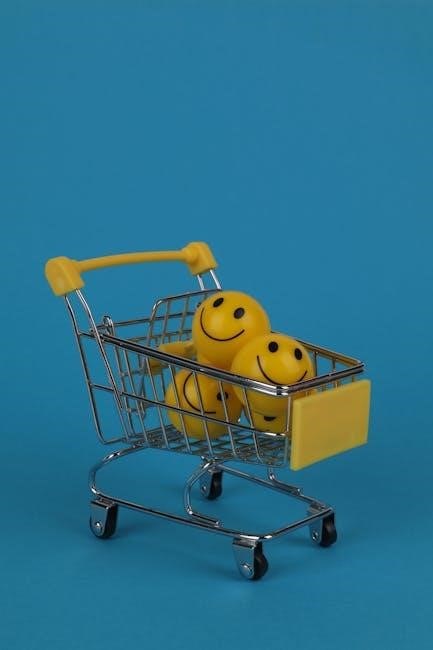Discover engaging mental health trivia questions and answers designed to break stigma, educate, and entertain. Perfect for fostering awareness and sparking meaningful conversations about well-being.
Why Mental Health Trivia Matters

Mental health trivia is a powerful tool for fostering awareness and understanding. By presenting information in a fun and engaging way, it helps break down stigmas surrounding mental health. Trivia games create a safe space for conversations about sensitive topics, encouraging people to ask questions and seek knowledge. This approach not only educates individuals but also promotes empathy and compassion. It highlights the importance of mental well-being and encourages proactive steps toward self-care. Additionally, trivia can empower communities by dispelling myths and providing accurate information. Its interactive nature makes learning about mental health accessible and less intimidating, ultimately contributing to a more informed and supportive society.
How to Use Fun Trivia for Awareness
Using fun trivia for mental health awareness is an effective way to engage audiences. Start by incorporating mental health trivia questions into group activities, workshops, or events. Divide participants into teams to foster collaboration and friendly competition. Each question should cover key topics like common myths, statistics, and self-care practices. Provide clear, accurate answers to ensure learning. Share personal stories or reflective exercises after the game to deepen understanding. Utilize online platforms or printable PDFs for easy access. Trivia can also be integrated into school curriculums or workplace programs to normalize mental health discussions. By making education enjoyable, trivia helps create a culture of openness and support, encouraging people to prioritize their mental well-being. This approach ensures awareness is both impactful and lasting.

Interesting Examples of Fun Mental Health Trivia Questions

Question 1: Resilience and Its Importance
Test your knowledge with this engaging question: “What is the term for the ability to bounce back from difficult situations?” Answer: Resilience. This concept is crucial for mental well-being, helping individuals adapt and recover from challenges, fostering emotional strength and stability in everyday life.
Engage with this thought-provoking question: “What is the term for the ability to bounce back from difficult situations?” Answer: Resilience. Resilience plays a vital role in mental health, enabling individuals to adapt and recover from adversity. It fosters emotional strength, helping people navigate challenges with confidence. Understanding resilience promotes well-being and empowers individuals to build coping strategies. This concept is central to mental health awareness, emphasizing the importance of adaptability and emotional stability in overcoming life’s obstacles. By fostering resilience, we encourage a positive approach to mental health, equipping individuals with tools to thrive in the face of adversity. This question sparks meaningful discussions about mental well-being and its impact on daily life.
Question 2: The Father of Modern Psychology
Question 2: Who is known as the Father of Modern Psychology? Answer: Wilhelm Wundt. Wilhelm Wundt is recognized for establishing the first formal psychology laboratory in Leipzig, Germany in 1879, marking the beginning of psychology as a separate scientific discipline. His work laid the groundwork for modern psychological studies, emphasizing the importance of systematic research in understanding human behavior and mental processes. Knowing such historical figures helps us appreciate the evolution of mental health awareness and the advancements in psychological practices. This question not only tests knowledge but also highlights the roots of contemporary psychology, making it an essential part of mental health trivia.
The Importance of Mental Health Awareness Through Trivia
Mental health trivia fosters awareness and reduces stigma by engaging people in an interactive, educational format. It encourages open conversations and promotes understanding of mental well-being while making learning fun;

Breaking the Stigma
Mental health trivia plays a crucial role in breaking down stigmas by normalizing conversations about mental well-being. Fun and engaging questions create a safe space for discussions, helping people understand that mental health affects everyone. By addressing common misconceptions through trivia, individuals gain accurate knowledge and empathy, reducing prejudice. This interactive approach makes complex topics relatable and less intimidating, fostering a culture of acceptance and support. Trivia games also provide a platform to share personal experiences, further dismantling the barriers that prevent open dialogue about mental health issues. Ultimately, it encourages a society where seeking help is seen as a strength, not a weakness.
Educating Through Engagement
Fun mental health trivia serves as an interactive tool for education, making learning about mental well-being enjoyable and accessible. By presenting information in a game-like format, trivia engages participants and encourages active learning. This approach fosters a deeper understanding of mental health topics, such as resilience, stress management, and common misconceptions. The competitive yet casual nature of trivia games creates a relaxed environment where people feel comfortable absorbing new knowledge. It also promotes retention of facts and encourages further exploration of mental health resources. This method is particularly effective in diverse settings, from schools to workplaces, making mental health education inclusive and impactful for all audiences. Through engagement, trivia bridges the gap between awareness and understanding.

How to Create Effective Mental Health Trivia Questions
Craft clear, engaging questions that balance fun and education. Ensure accuracy, relevance, and sensitivity. Focus on key mental health topics while keeping the tone light and informative.
Keeping It Fun and Informative
Crafting engaging mental health trivia requires a balance of enjoyment and education. Use a mix of easy and challenging questions to keep participants interested. Incorporate surprising facts, such as historical milestones or lesser-known statistics, to educate while entertaining. For example, a question about the origins of mental health awareness campaigns or the definition of resilience can spark curiosity. Ensure questions are relatable, avoiding overly technical terms unless necessary. Adding a touch of humor or lightheartedness can make the experience more enjoyable. Accuracy is key, so double-check facts to maintain credibility. By blending fun and informative content, trivia becomes a powerful tool for mental health awareness and learning.
Ensuring Accuracy in Answers
Accuracy is crucial when creating mental health trivia questions and answers. Use reliable sources like scientific studies, reputable organizations, or licensed professionals to verify facts. For example, the National Institute of Mental Health (NIMH) or the American Psychological Association (APA) provide trustworthy information. Avoid myths or misconceptions that could spread misinformation. Clearly define terms and ensure answers are concise yet comprehensive. Fact-checking is essential to maintain credibility and trust. Additionally, consider having answers reviewed by mental health professionals to ensure accuracy. By prioritizing precision, your trivia will not only educate but also foster a deeper understanding of mental health topics. This approach helps build a reliable and engaging resource for learners.
The Impact of Fun Mental Health Trivia on Communities
Fun mental health trivia fosters community bonding, reduces stigma, and promotes open discussions, creating a supportive environment for mental well-being.
Building a Supportive Environment
Interactive activities like fun mental health trivia help create a supportive environment by fostering connection and understanding. These engaging questions encourage empathy and reduce stigma, making it easier for individuals to discuss their mental well-being openly. By sharing knowledge in a non-threatening way, communities can build a culture of care and mutual support. For example, trivia questions about resilience or historical mental health milestones educate while encouraging teamwork. This collaborative approach helps break down barriers and fosters a sense of unity. When people feel informed and connected, they are more likely to support one another, creating a community where mental health is prioritized and openly discussed without fear of judgment.
Encouraging Open Conversations
Fun mental health trivia serves as a powerful tool to encourage open conversations about mental well-being. By presenting questions in a relaxed and engaging format, individuals feel more comfortable discussing topics that might otherwise seem sensitive. Trivia games create a safe space for sharing experiences and perspectives, helping to normalize mental health discussions. Players gain insights into common misconceptions and learn accurate information, which can reduce stigma. This interactive approach fosters empathy and understanding, making it easier for people to talk openly about their feelings and challenges. Over time, such activities help build a culture where mental health is discussed without fear or judgment, promoting a more supportive and informed community. Engaging in these conversations is the first step toward meaningful change and connection.




About the author